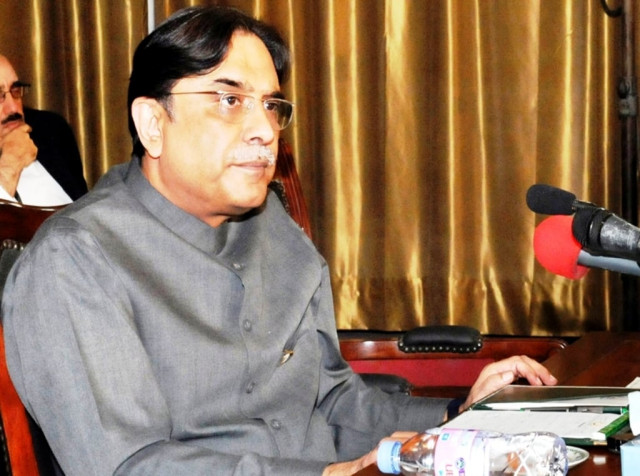The president’s interview
It is difficult to get a consensus whether Zardari’s interview, aired over the weekend, was a good one.

He said no one had asked him to resign, meaning that there was no stand-off with the army, which can be taken with a pinch of salt given the affidavit of the army chief at the Supreme Court. He said he knew that the Taliban leader Baitullah Mehsud had got Benazir Bhutto killed through his men but he was on the scent of who was behind Mehsud. He tried to stop Ms Bhutto from coming to Pakistan in 2007 but she did not listen, he said, and her going to the venue in Rawalpindi where she was killed was made possible by a female member of the party who insisted that Ms Bhutto expose herself through the vehicle’s sun roof at the rally. The clear reference to the unnamed female member — the now-rebel Naheed Khan — was important because it put on record his answer to the opposition charge that he and his cohorts in the party (like interior minister Rehman Malik and now party vice-president Babar Awan) were somehow involved in the assassination. But it also put on record Mr Zardari’s anxiety over the rebel Naheed Khan-Safdar Abbasi duo within the party that may threaten to damage the PPP in its next electoral test after four disastrous years in office. Mr Zardari’s explanation of his much-maligned article in the Washington Post after the death of Osama bin Laden in Abbottabad, once again clarified that he was in no way privy to the American plot to attack Abbottabad. One must say that the expression in the article of modest joy over the death of bin Laden was completely justified. It is tragic that most Pakistanis forgot that the man was responsible for the killing of thousands of innocent Pakistani citizens.
The interview contained an important message meant for the Supreme Court which has asked the government for the last time to write a letter to a Swiss court to restart a case of money-laundering against the president. He said that reopening the case would be like a “trial over Benazir Bhutto’s grave”. Of course, the honourable Court doesn’t see the case like that, nor does the opposition and a whole range of politicians who want Mr Zardari to lose his job and go to jail once again. But more clearly the cabinet of Prime Minister Yousaf Raza Gilani has resolved not to write the letter, thus bringing forward the highly politicised final showdown between the judiciary and the executive. Of course, his denial of a clash with the judiciary was forgivably disingenuous. But his defence of the former minister for religious affairs now languishing in jail for involvement in the gouging of funds set aside for the annual hajj was out of place. Furthermore, his refusal to accept that the railways, PIA and other key public sector organisations are on the brink of collapse only reinforces the public perception that the government is out of touch with reality. His reference to former foreign minister Mr Shah Mehmood Qureshi was apt, as the latter was quite unthinking in saying at a public rally recently that he could “swear that Pakistan’s nuclear programme was not safe in the hands of Zardari”. It will take a long time for a Pakistani elected leader to get near enough to the nuclear programme to influence it. Also, criticism over the way in which the Benazir Income Support Programme is going to be used by the party to garner votes in the next election is not entirely out of place. That all said, President Zardari came across as a party leader with whom one could do business under the Aristotelian slogan of politics as the art of the possible.
Published in The Express Tribune, January 10th, 2012.















COMMENTS
Comments are moderated and generally will be posted if they are on-topic and not abusive.
For more information, please see our Comments FAQ